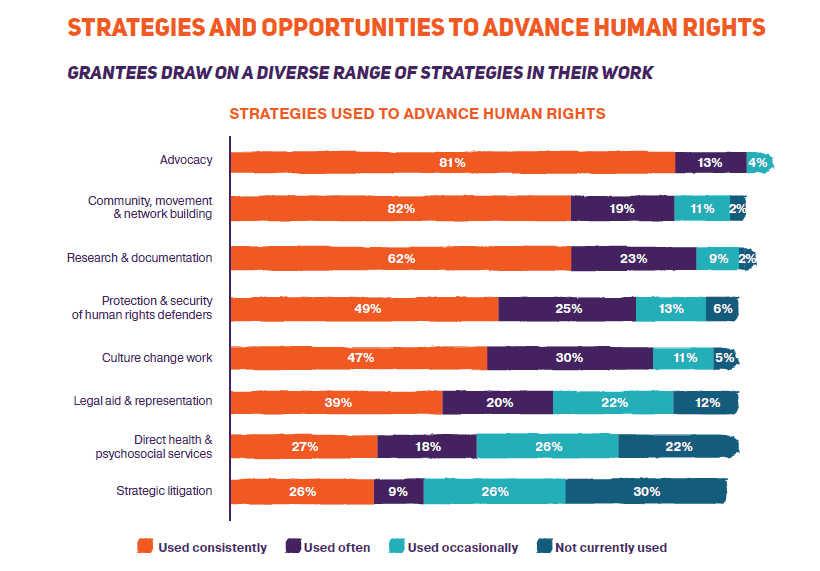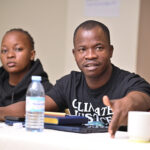This article was published more than 3 years ago.
Executive Summary
As part of our learning and assessment efforts, the Fund gathers evidence across our programs to explore and evaluate aspects of our theory of change, our values, and our practices as a grant-maker. At the start of the COVID-19 pandemic, the Fund circulated a survey among grantee partners to learn more about the effects of the crisis on their work.
From September to October of 2020, nearly 200 Fund grantees participated in a follow-up survey. This survey was intended to help us document the needs, priorities, and strengths of current grantees. We also sought to understand how grantees have adapted and responded to the global pandemic. Finally, we hoped the findings would inform our work and contribute to grantees’ efforts to advance human rights around the world.
This paper presents key findings from the second survey.

Using This Data
Fund staff have referenced the survey data to hold internal reflection and learning discussions, to inform programmatic strategies, and—most importantly—to understand how we can best contribute to ongoing efforts to advance human rights during the pandemic and beyond. While the data gathered has been invaluable to us, it is our hope that the findings from the survey also will be useful to grantee partners and our peers.
- Fund grantees might use these survey findings to reflect on their experiences in the context of global human rights activism. Where are you facing similar or different challenges?
- Grantee partners may also want to use the survey findings to frame conversations with us. How can the Fund improve our work and practices as a grant-maker?
- Fund staff and grantee partners might draw on these findings together to inspire learning, exchange, and collaboration across human rights issues or geographies.
- Finally, the Fund will use the survey findings within the international philanthropic community to make the case for flexible support to human rights activists. Grantees might draw on the survey findings to inform similar conversations with other funders.


